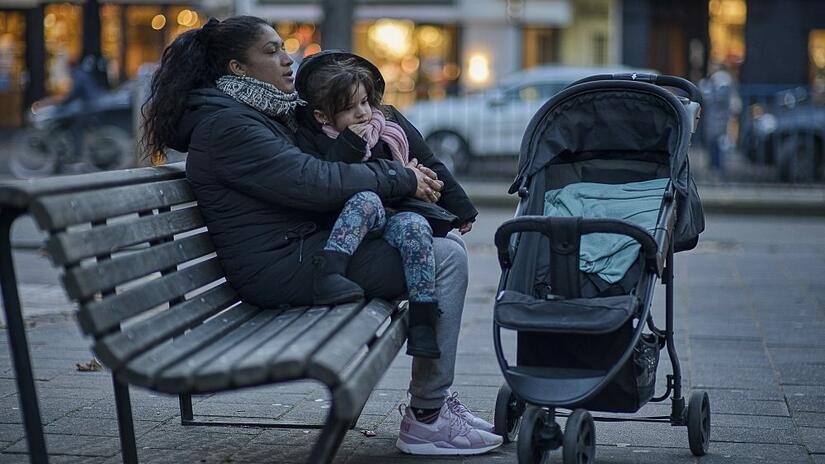The verdict is in: COVID-19 worsens mental health. So there can be no excuse and no delay in stepping up now to prevent a worsening and chronic catastrophe.
There is no health without mental health, therefore recovery from the pandemic needs to factor in mental health and psychosocial interventions.
Let’s step back and view the evidence. No group is immune from COVID-19’s insidious effects on mental health: from school children, to those of us working remotely, to the elderly. Studies have documented the extreme negative impact of the isolation caused by school closures which, at one point, saw 90 per cent of the world’s children locked out of school. A study of children in China found elevated rates of depression and anxiety. Similarly, another study found 86 per cent of Italian and Spanish parents noticed changes in their children’s emotional states and behavior during home confinement.
Sadly, children at home can be more at risk of abuse and neglect, as stressors on families increase, and the structure of the school day is taken away. There is also evidence of increased risk of suicide and self-harm among young people during the pandemic. Other studies have pointed to negative consequences of increased screen time . For the wider population, the suicide risk has also climbed . And new research co-led by the International Federation of Red Cross and Red Crescent Societies (IFRC) has found older people become sicker and poorer and feel more alone as a result of living through the pandemic.
To bridge the gap between ballooning mental health care needs and services, traditional mental health care systems will not be the only answer. The IFRC and its network of 192 Red Cross and Red Crescent National Societies is already part of this solution. Mental health and psychosocial support is a core part of our work.
Following commitments we made to the state parties of the Geneva Conventions at the International Conference of the Red Cross and Red Crescent in 2019, we are making mental health and psychosocial support an even bigger part of our work.
Globally we have provided mental health and psychological support to 7.16 million people affected by COVID-19 since the pandemic started. Volunteers and staff have taken to telephone hotlines, new digital forms of support such as webinars, videos and SMS chats.
Our support comes alongside a wider expansion in new ways of reaching out to people suffering depression, anxiety, and PTSD, such as videoconferencing, online forums, smartphone apps, text-messaging, and e-mails, which evidence shows have been found to be effective ways of delivering treatment.
In Armenia, Red Cross psychologists provide psychosocial support services to people and assign volunteers to those identified as struggling to provide extra help with household chores. Danish Red Cross set up a phone service for volunteers to chat with people who are home alone.
A new form of support was seen in a project run by Serbian Red Cross, which published a collection of creative writing about peoples’ experiences of living through the pandemic.
The French Red Cross has set up Croix-Rouge Chez Vous (Red Cross at Home), combining a national call centre and the dispatch of aid to all parts of France, both mainland and overseas territories. It targets any socially-isolated person who has no connections or support from family, friends or neighbours, who are able to call in and receive a listening ear, and receive a follow-up delivery of goods if needed.
Bulgarian Red Cross operates a telephone-based psychology service, where people can book free sessions online with qualified psychologists.
And Italian Red Cross psychologists are on board quarantine ships for migrants, to support the mental health and protection of the most vulnerable migrants, including minors, trafficked women, pregnant women and victims of discrimination. They also support the wellbeing of Red Cross personnel.
In a partnership with the IFRC, British Red Cross psychologist Dr Sarah Davidson has featured in a successful social media video series to reach new audiences.
Global action
With the pandemic’s effects expected to extend well beyond the current year, it’s clear more action needs to take place now if we are to be serious about preventing the deteriorating mental health of millions of people.
We are recommending three key steps:
- A serious scaling up of mental health and psychosocial services. High attention to widening national societies’ access to new digital and other innovative means is needed. The IFRC network is well placed to facilitate sharing new practices and learning, and to work towards narrowing the digital divide.
- Governments and major donors should step up investment in addressing mental health problems to enable individuals, families and communities to meet the challenges brought by the pandemic. Early and effective access to mental health and psychosocial support is key to creating sustainable and healthy local communities.
- More care for the carers. Red Cross and Red Crescent people, who have worked through the pandemic, often when responding to other disasters, are immensely tired. We have become a more flexible workplace with increased support systems and monitoring of staff and volunteers’ wellbeing, and encourage wider formal supports for these often invisible responders.
Sadly, the full effects of this pandemic will only emerge much later, robbing many people of their future dreams. Now is the time to invest more in mental health care and psychological support that works. Even a small investment can have big results. Our movement is uniquely placed to scale up engagement through the variety of new platforms and services with our networks of trained volunteers in every community. Together with our partners, we can meet increased demand with expanded and integrated services and supports.

